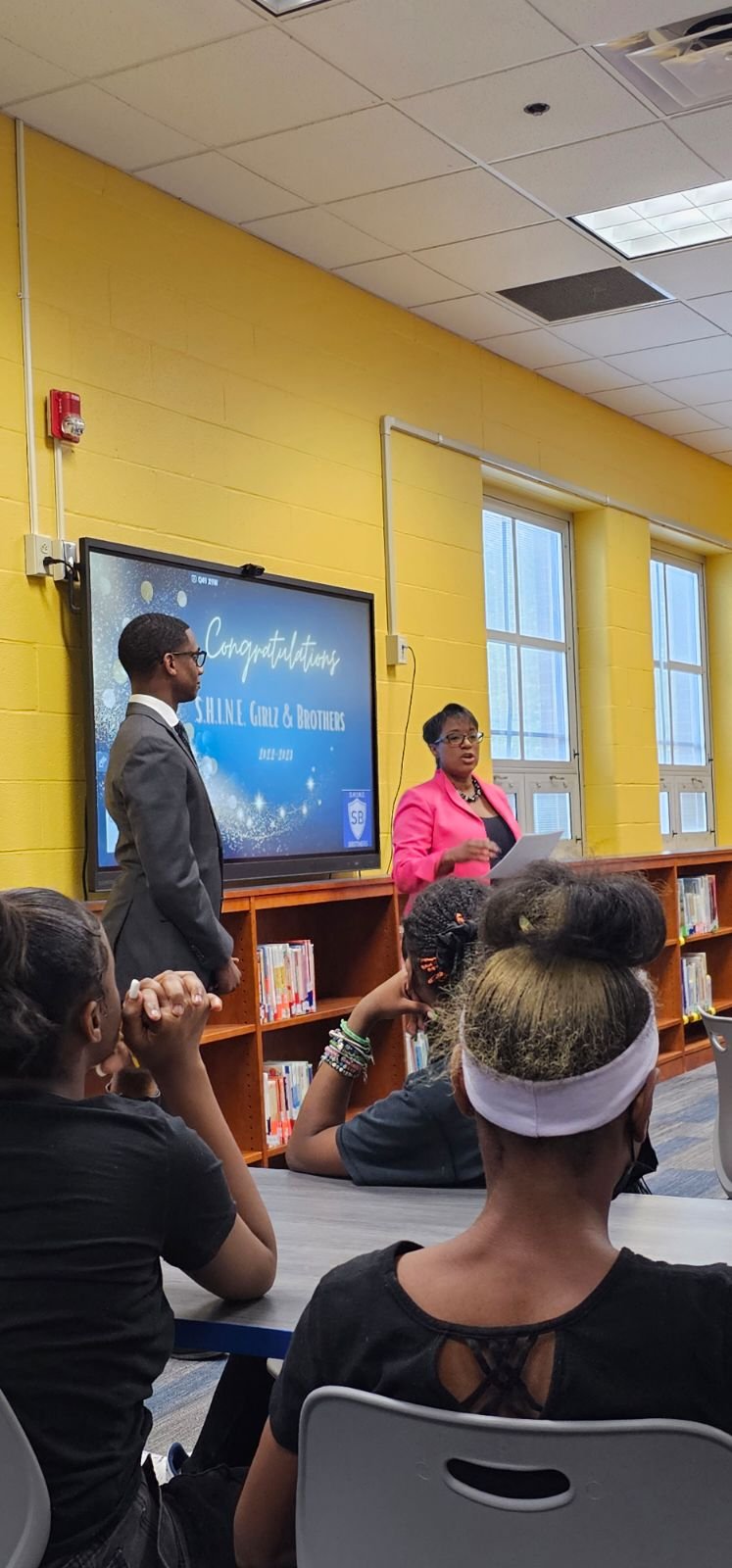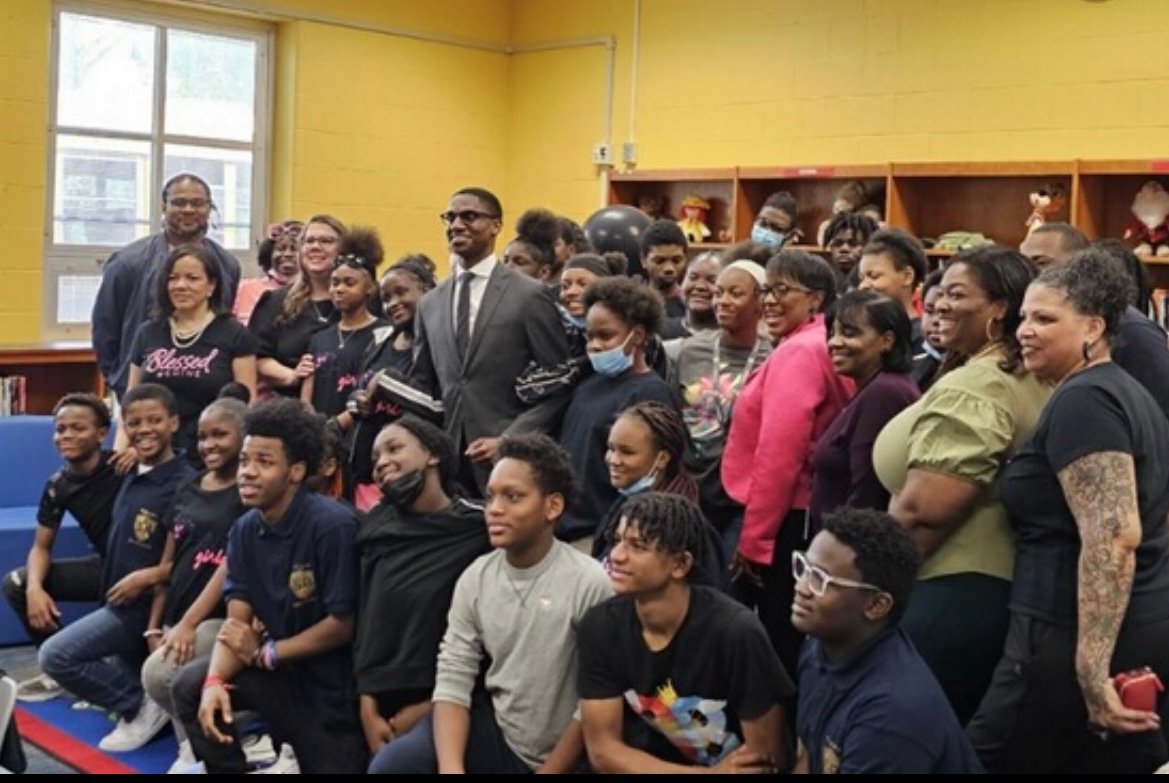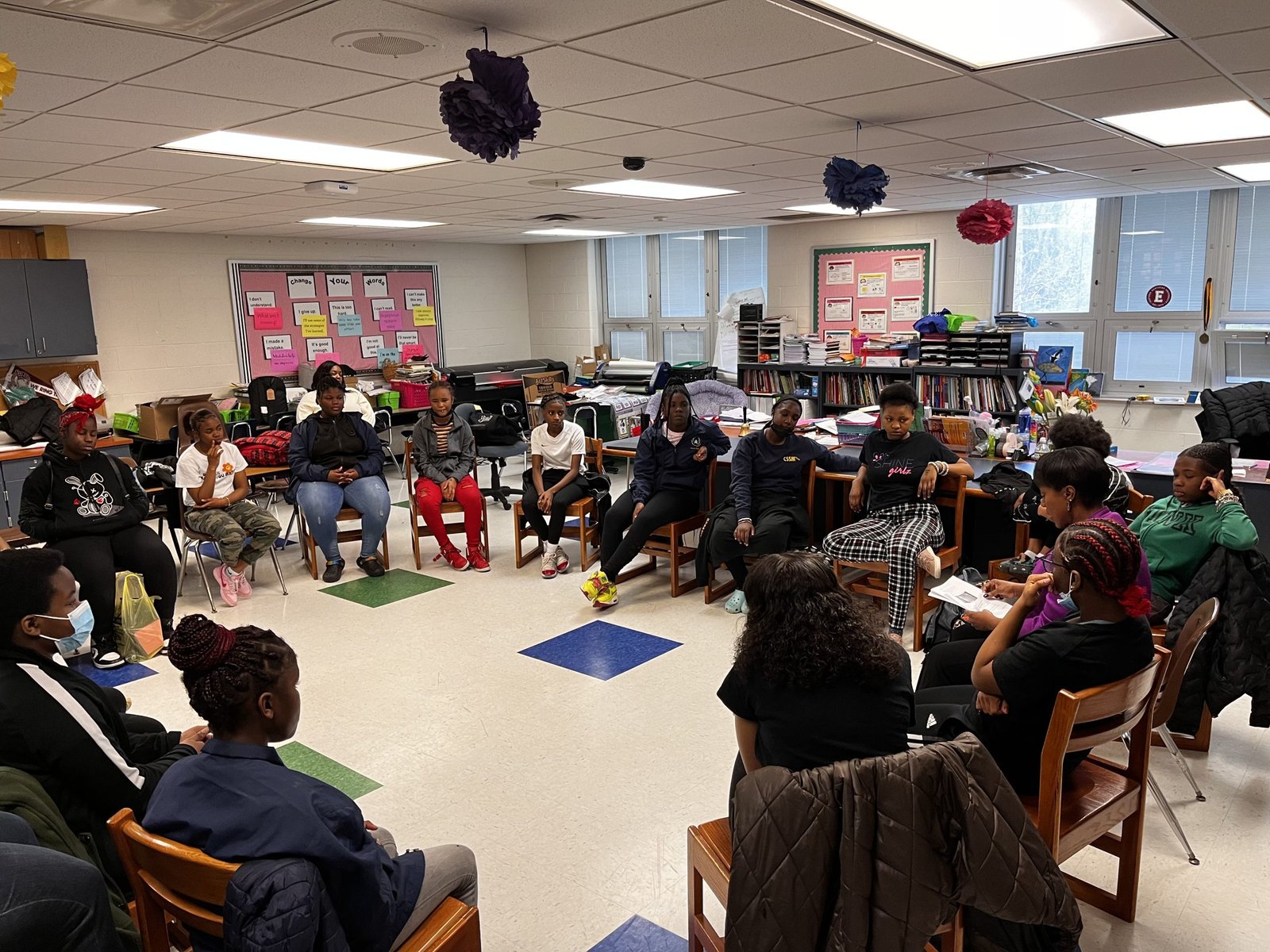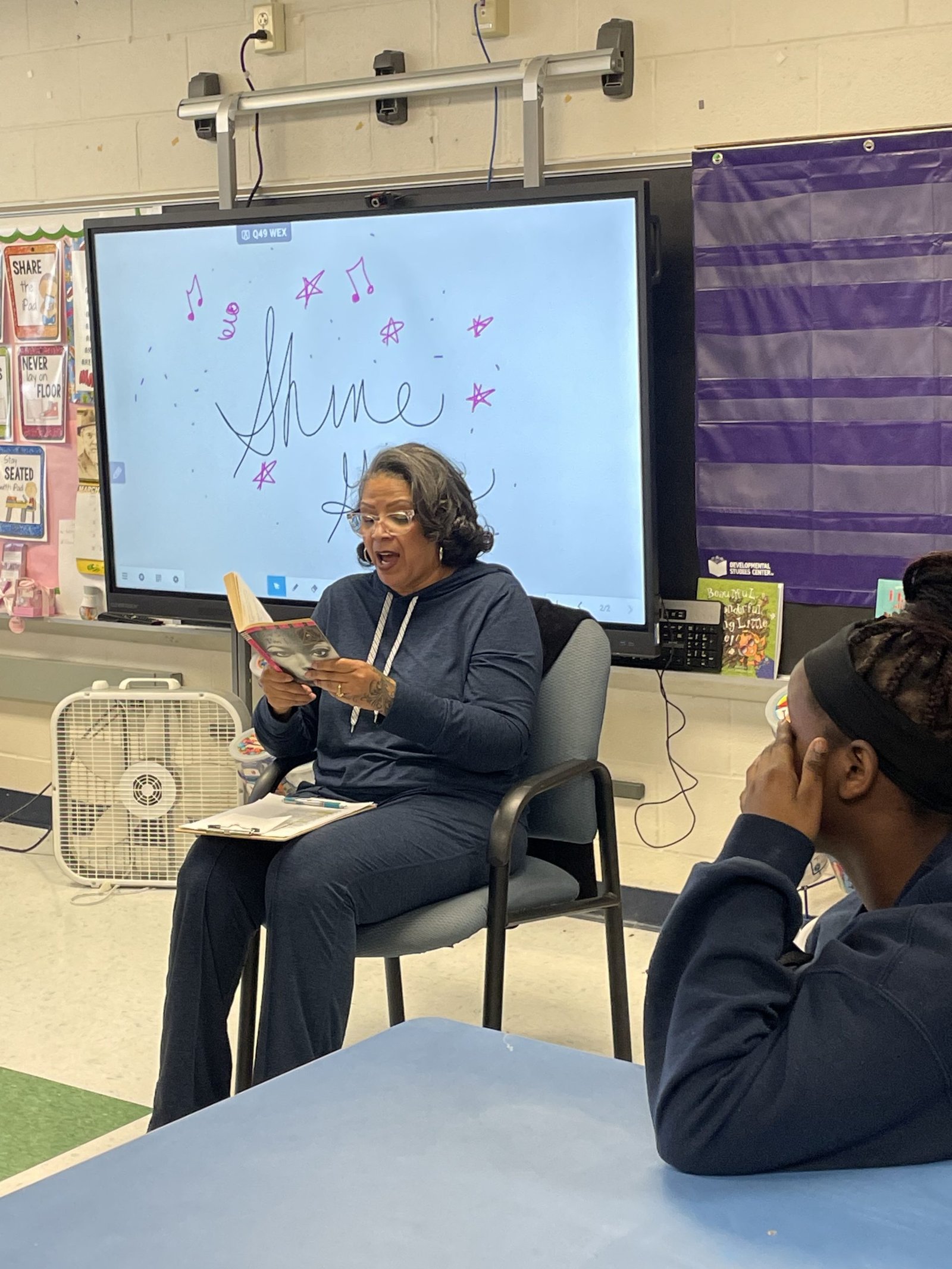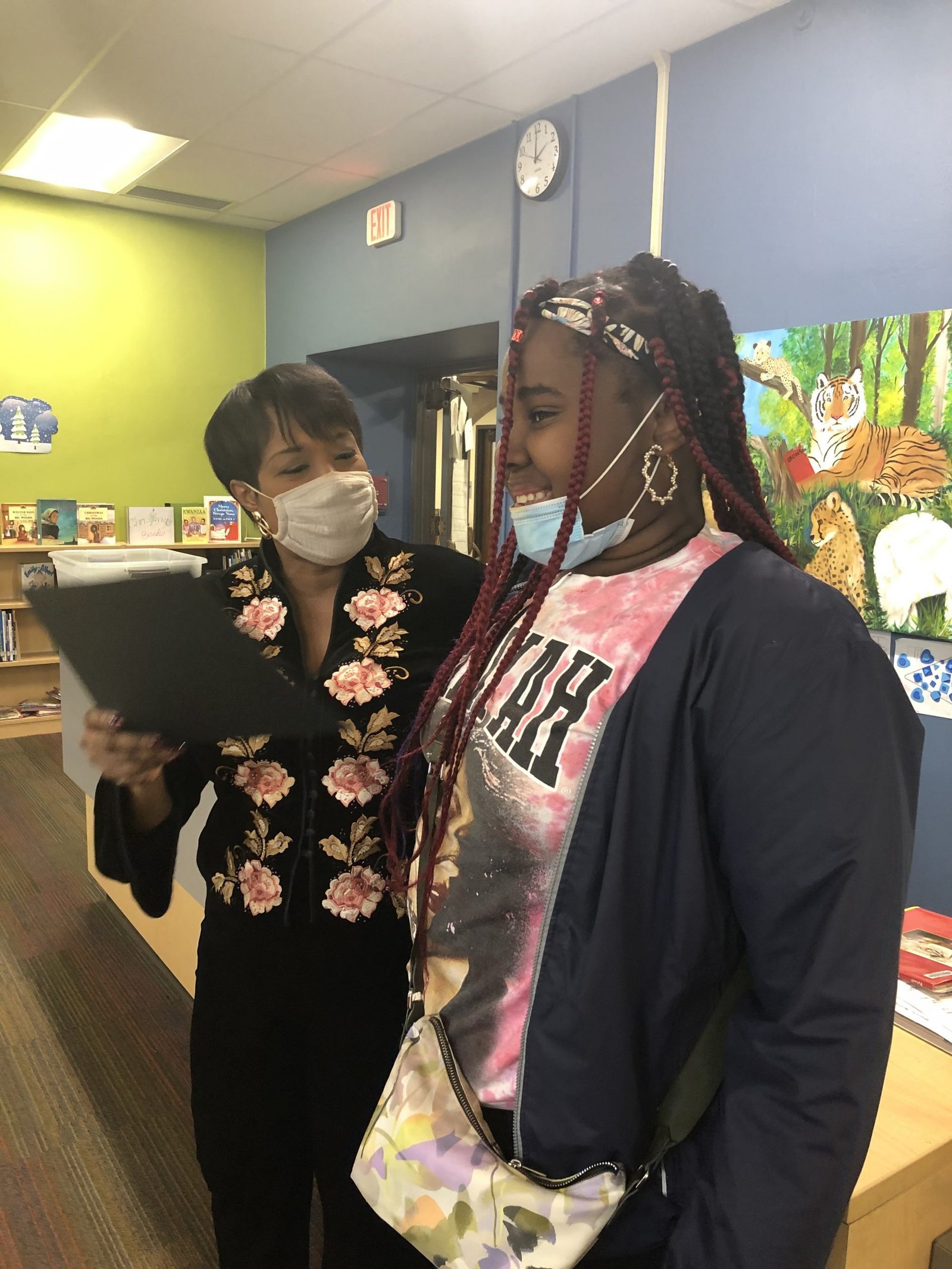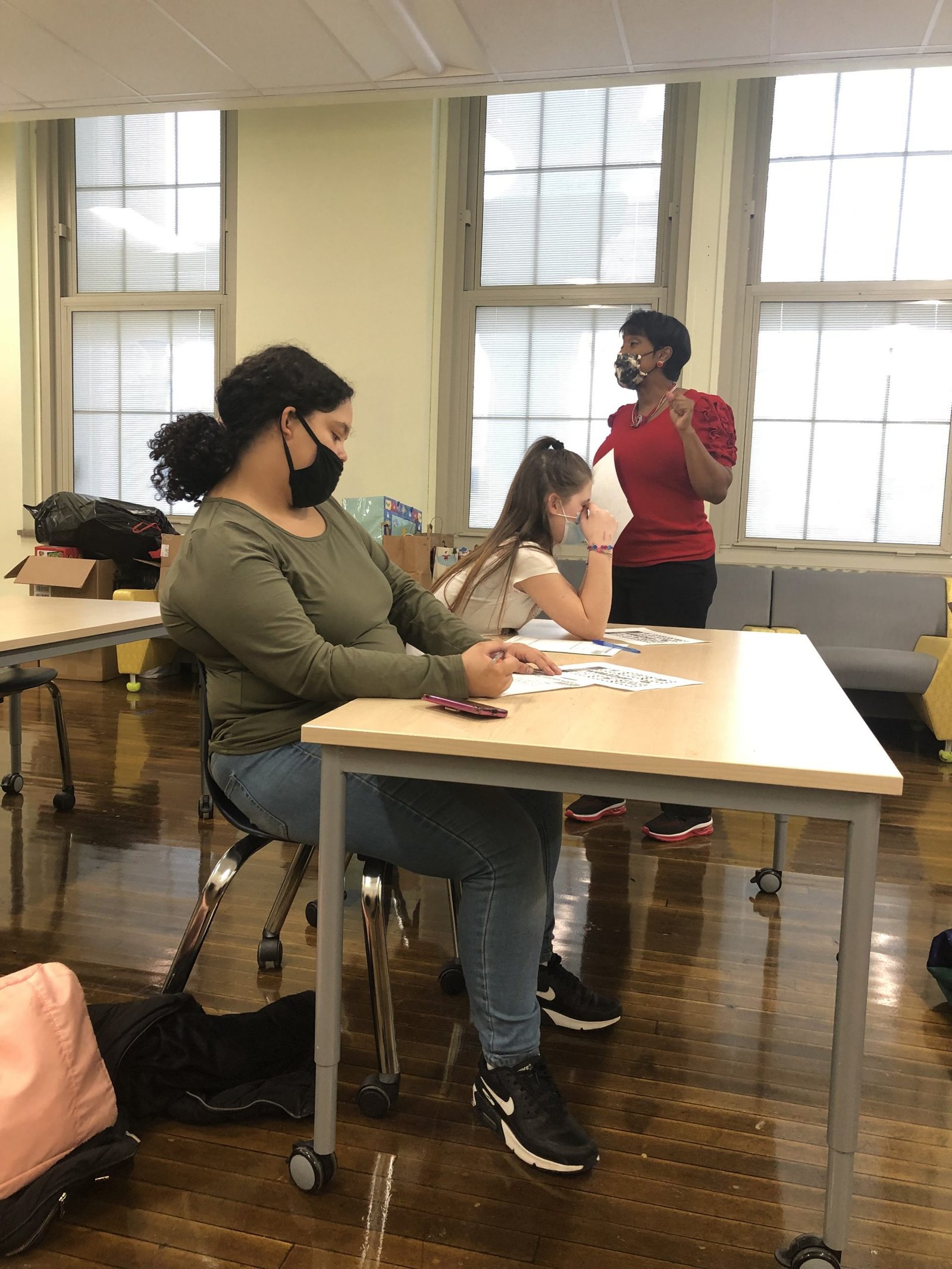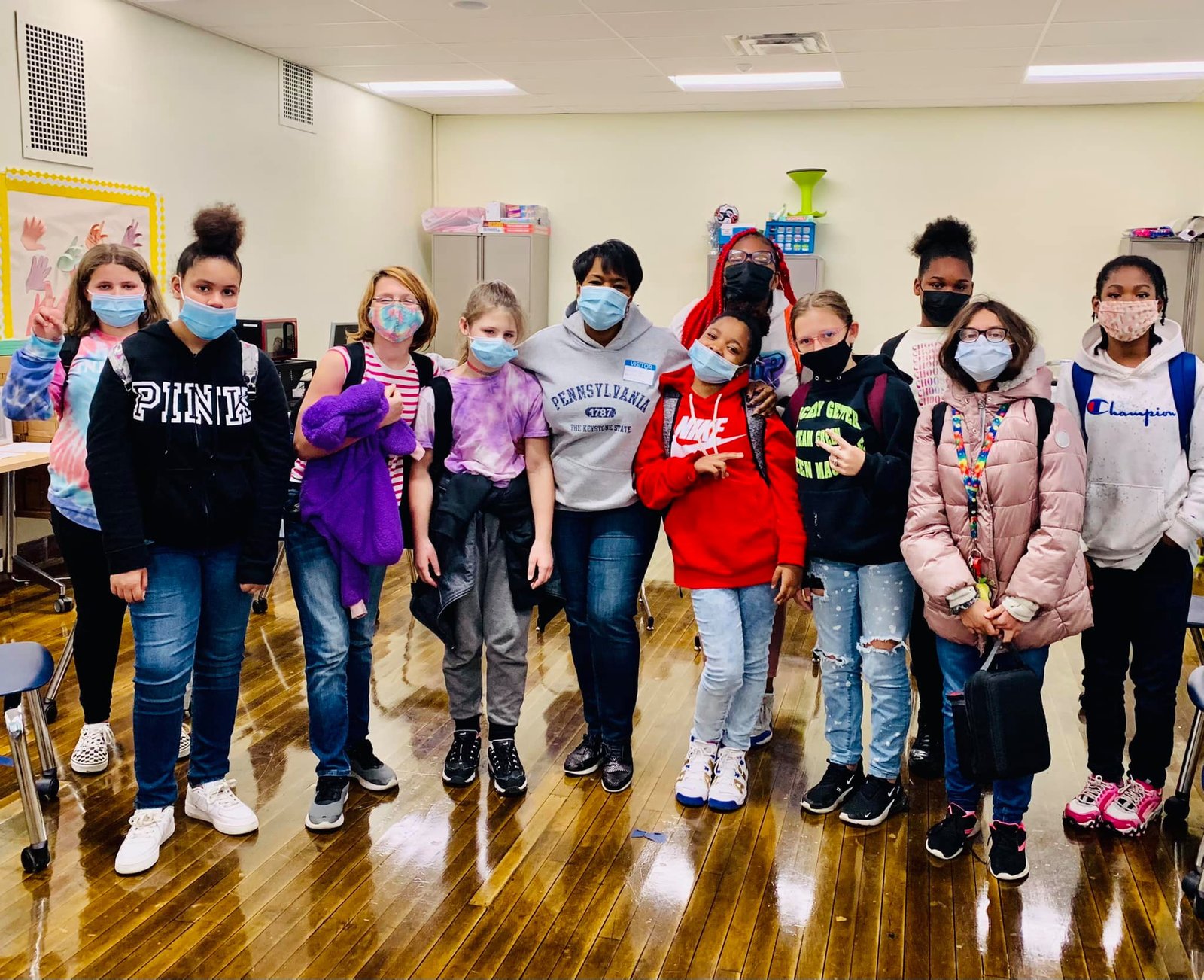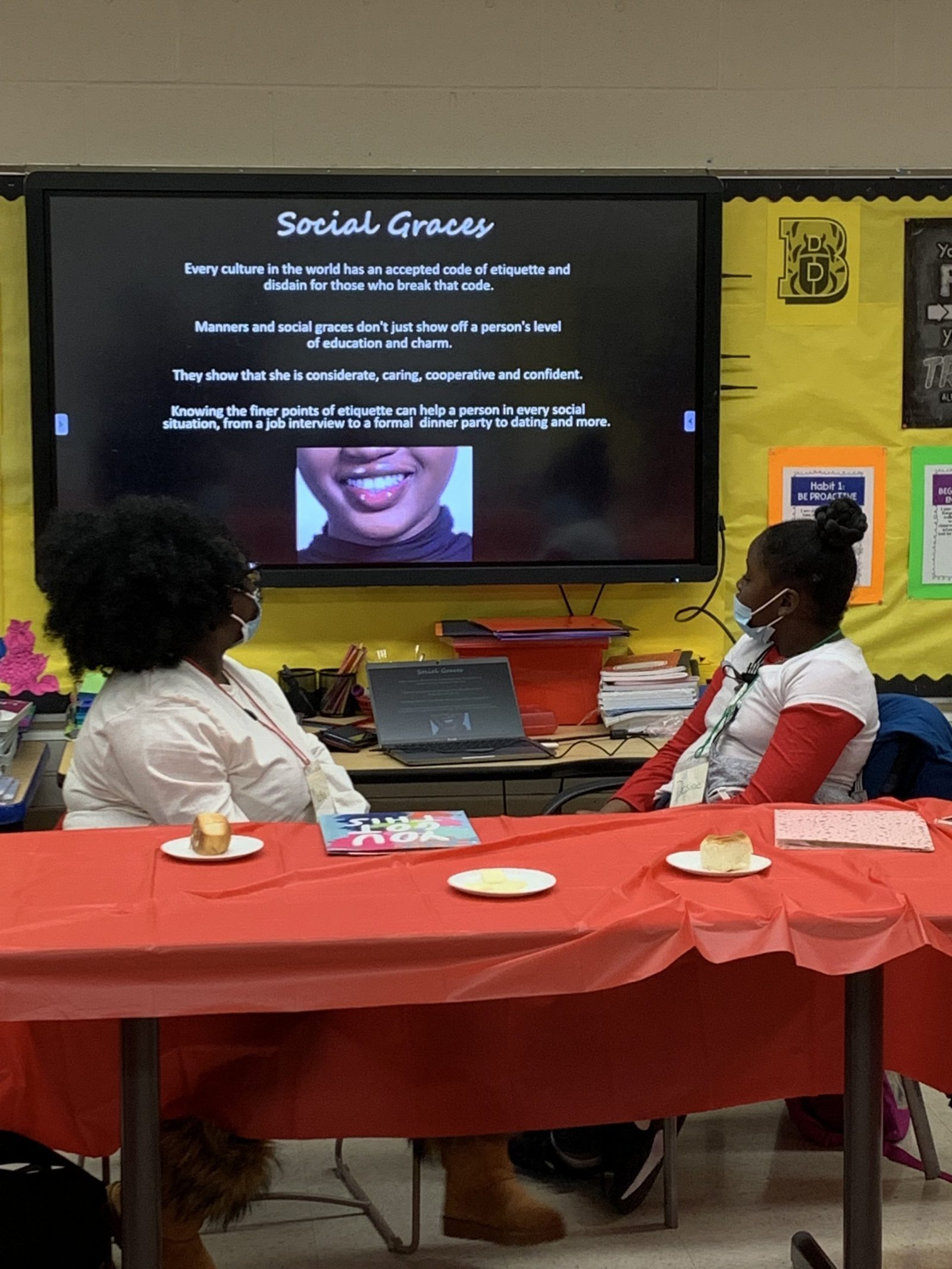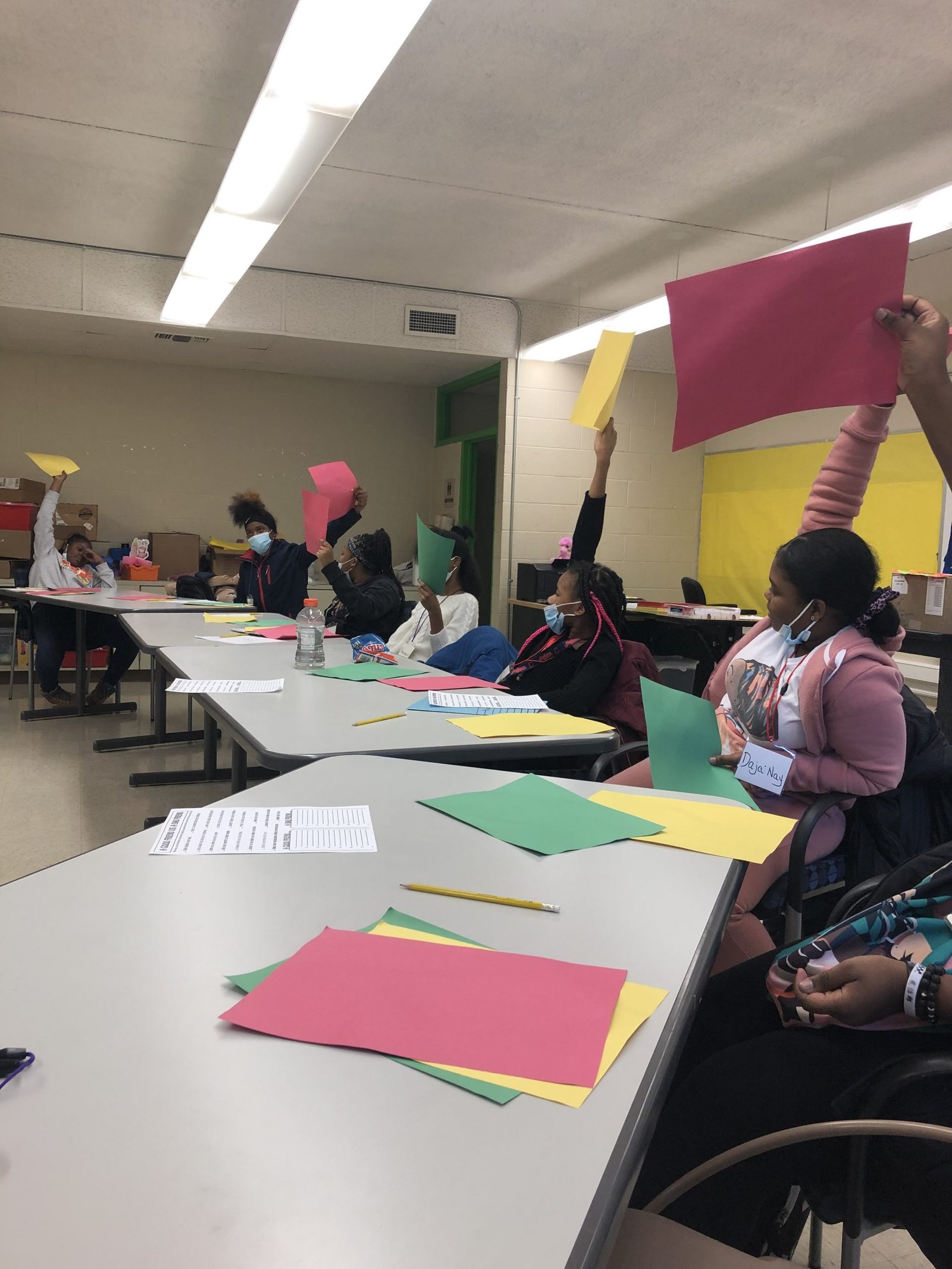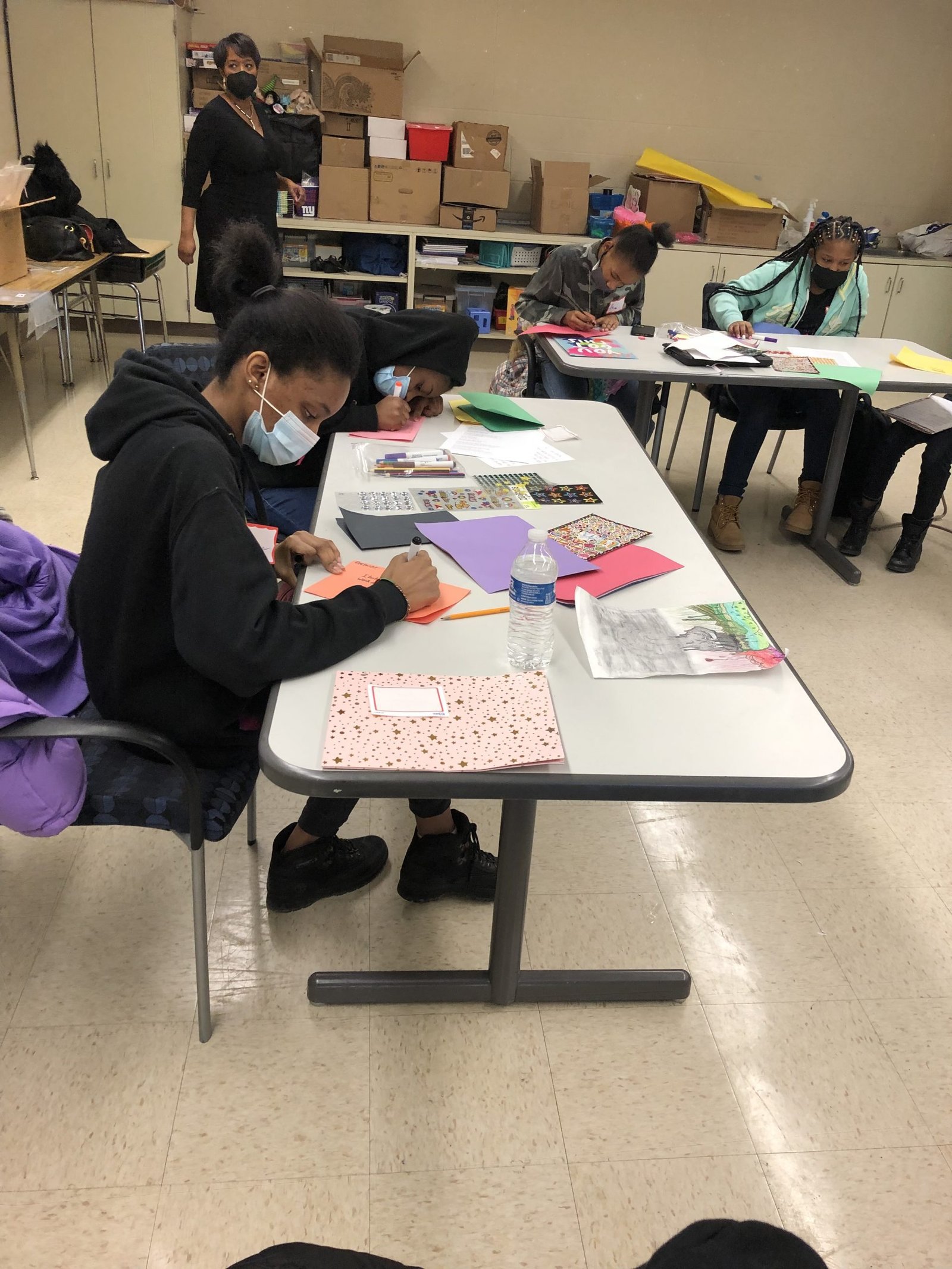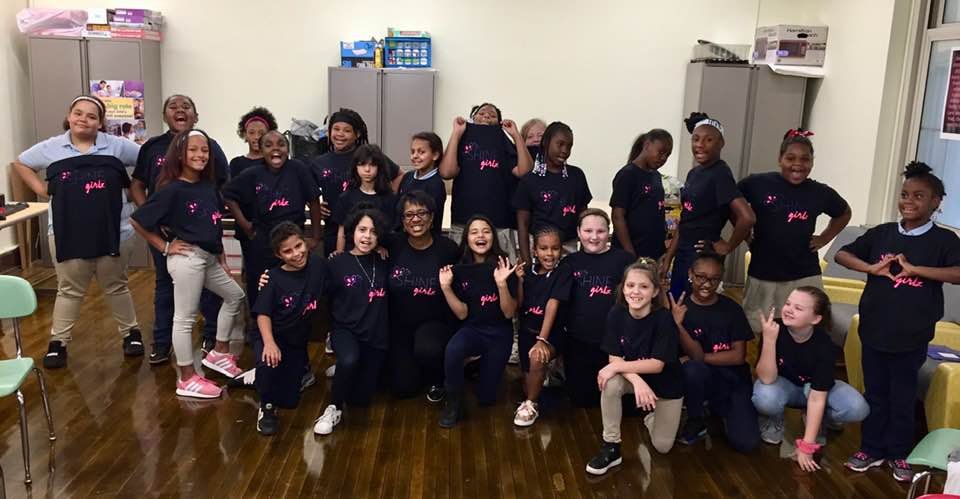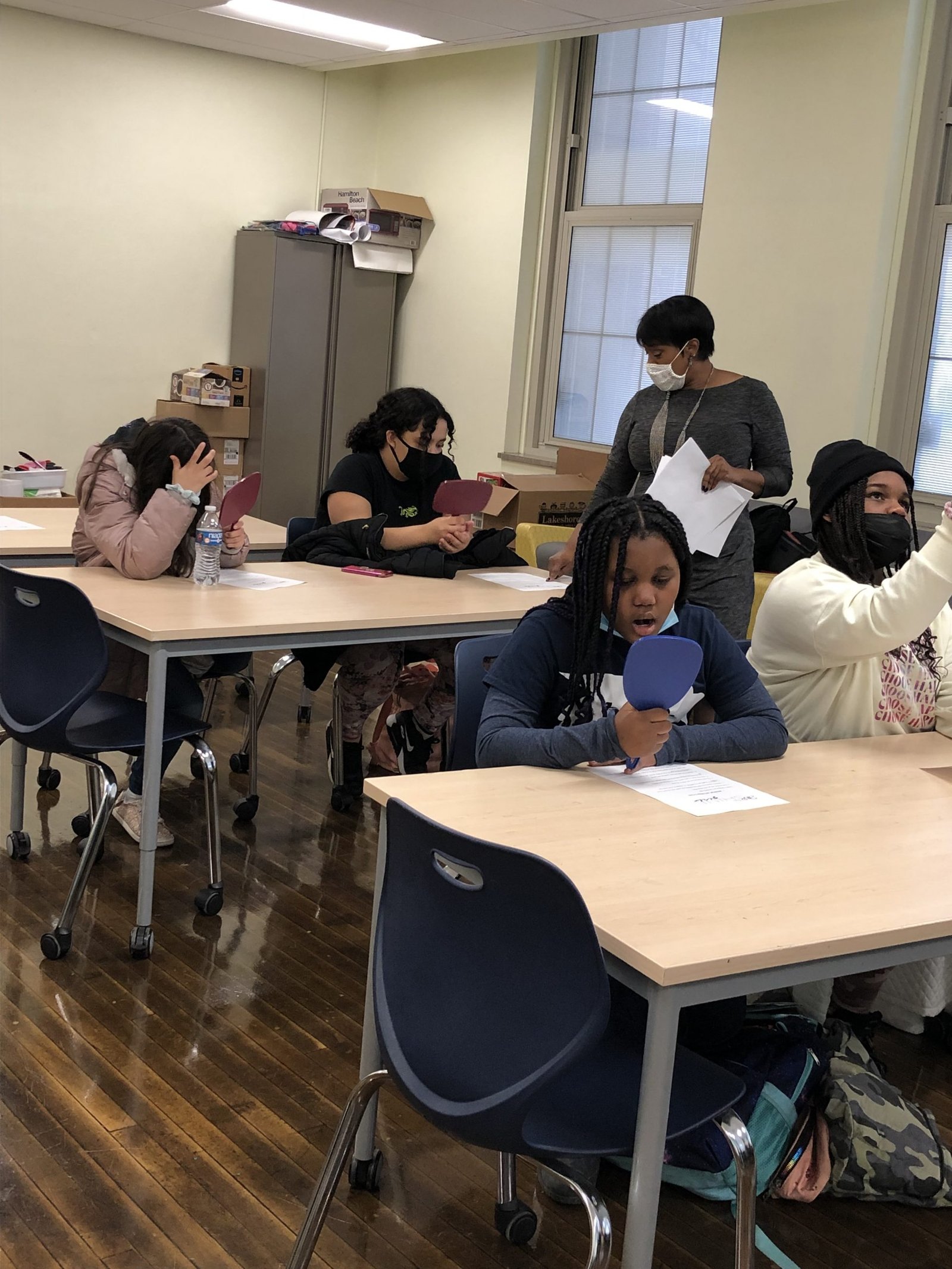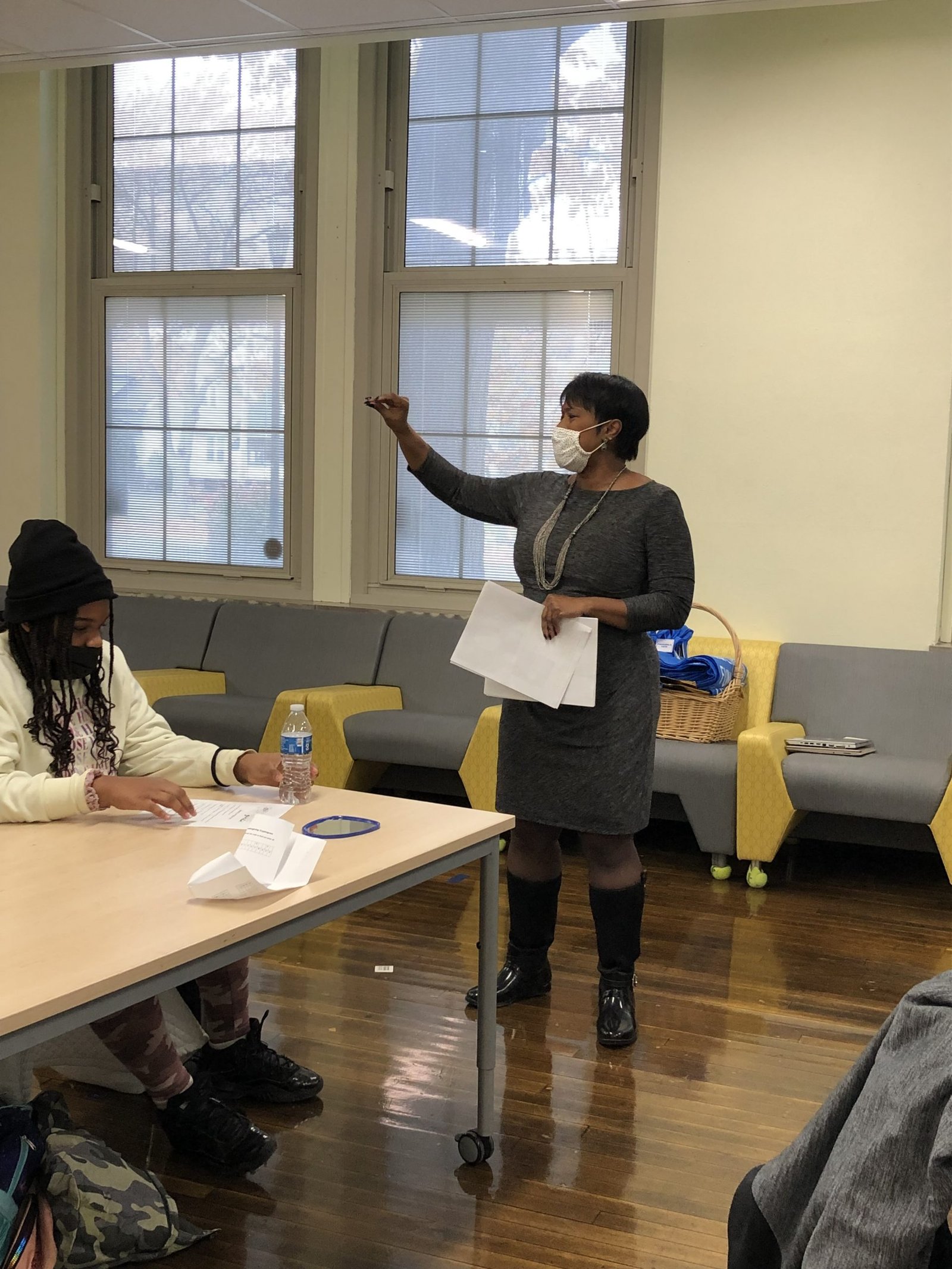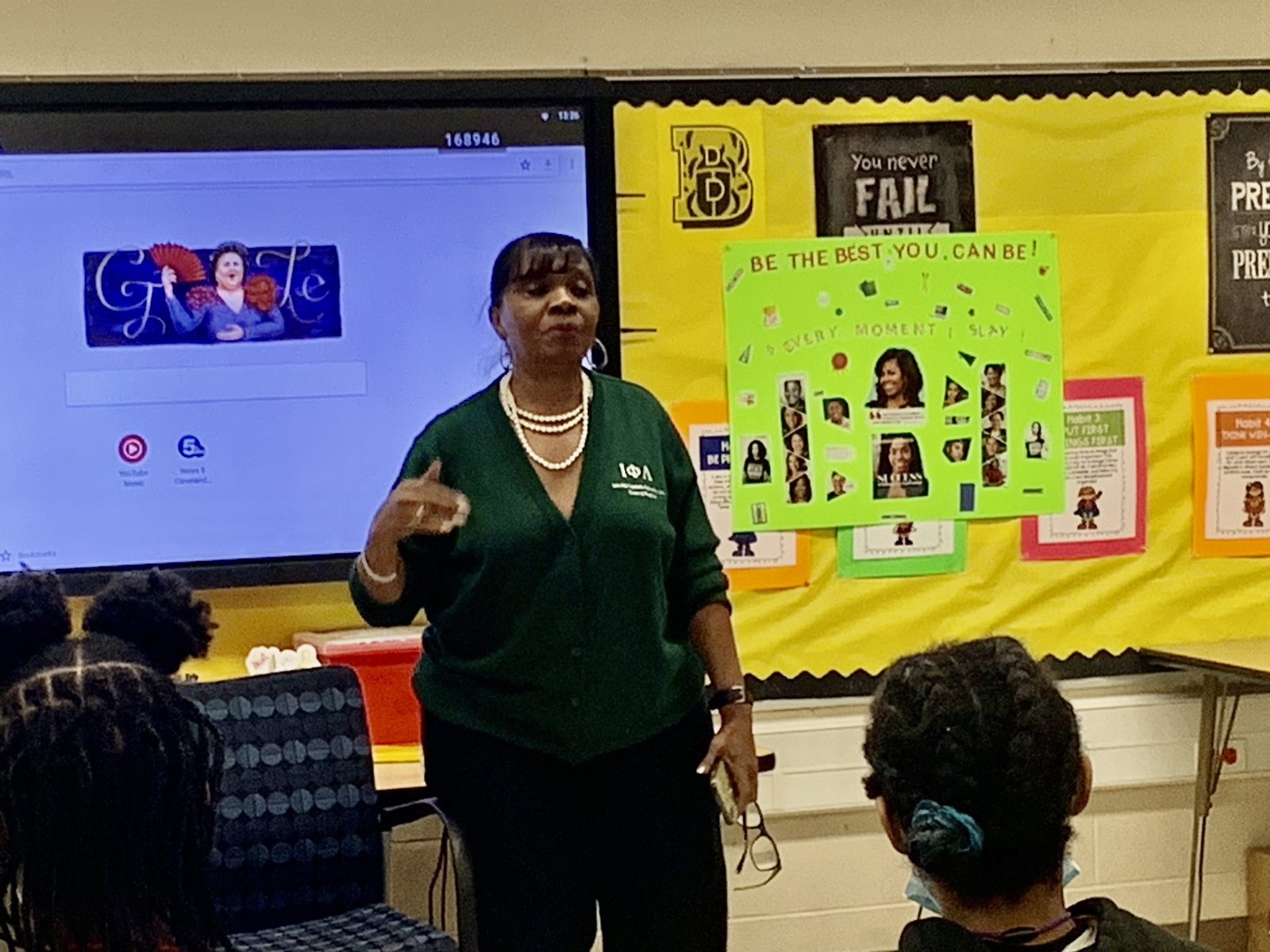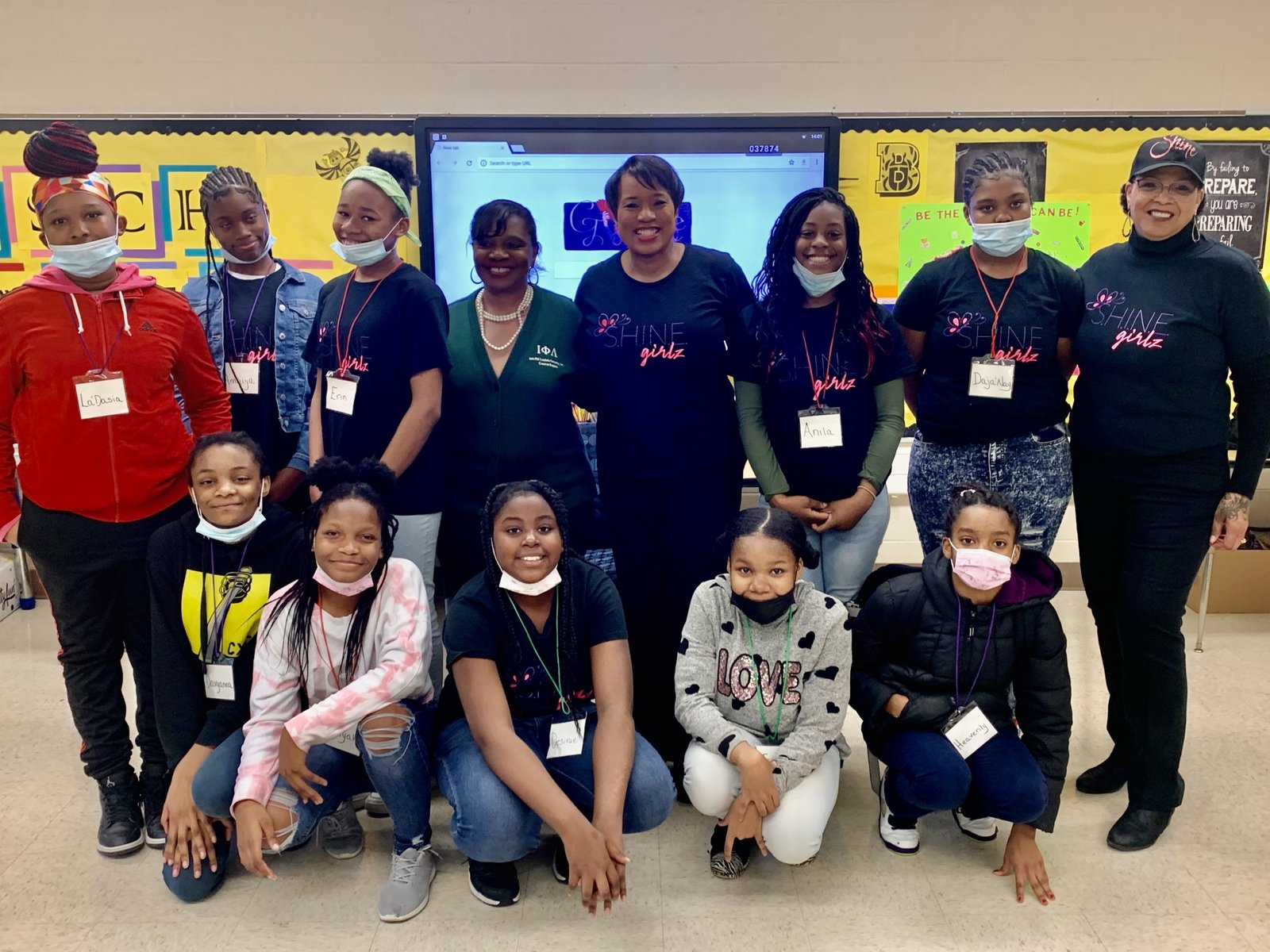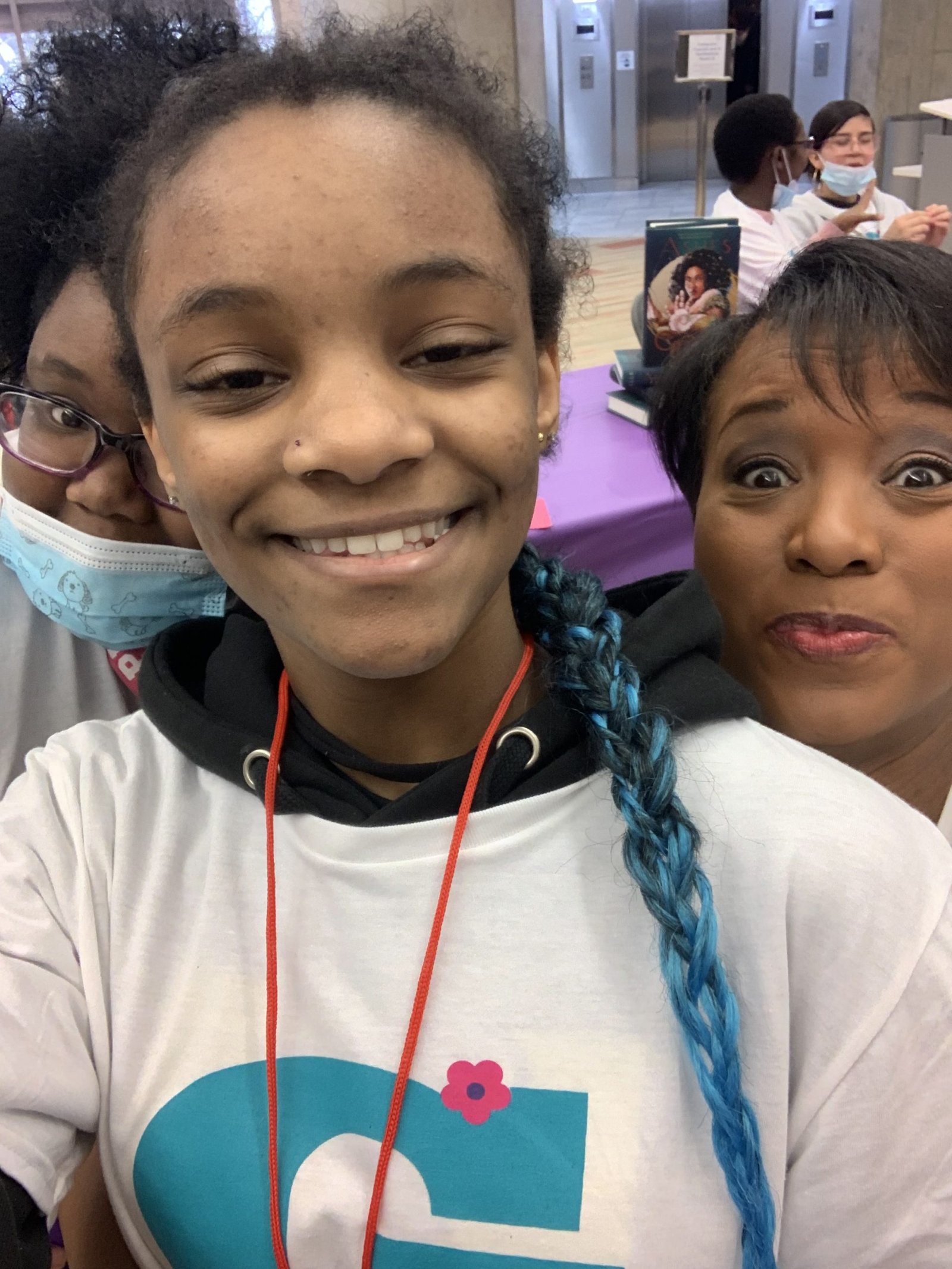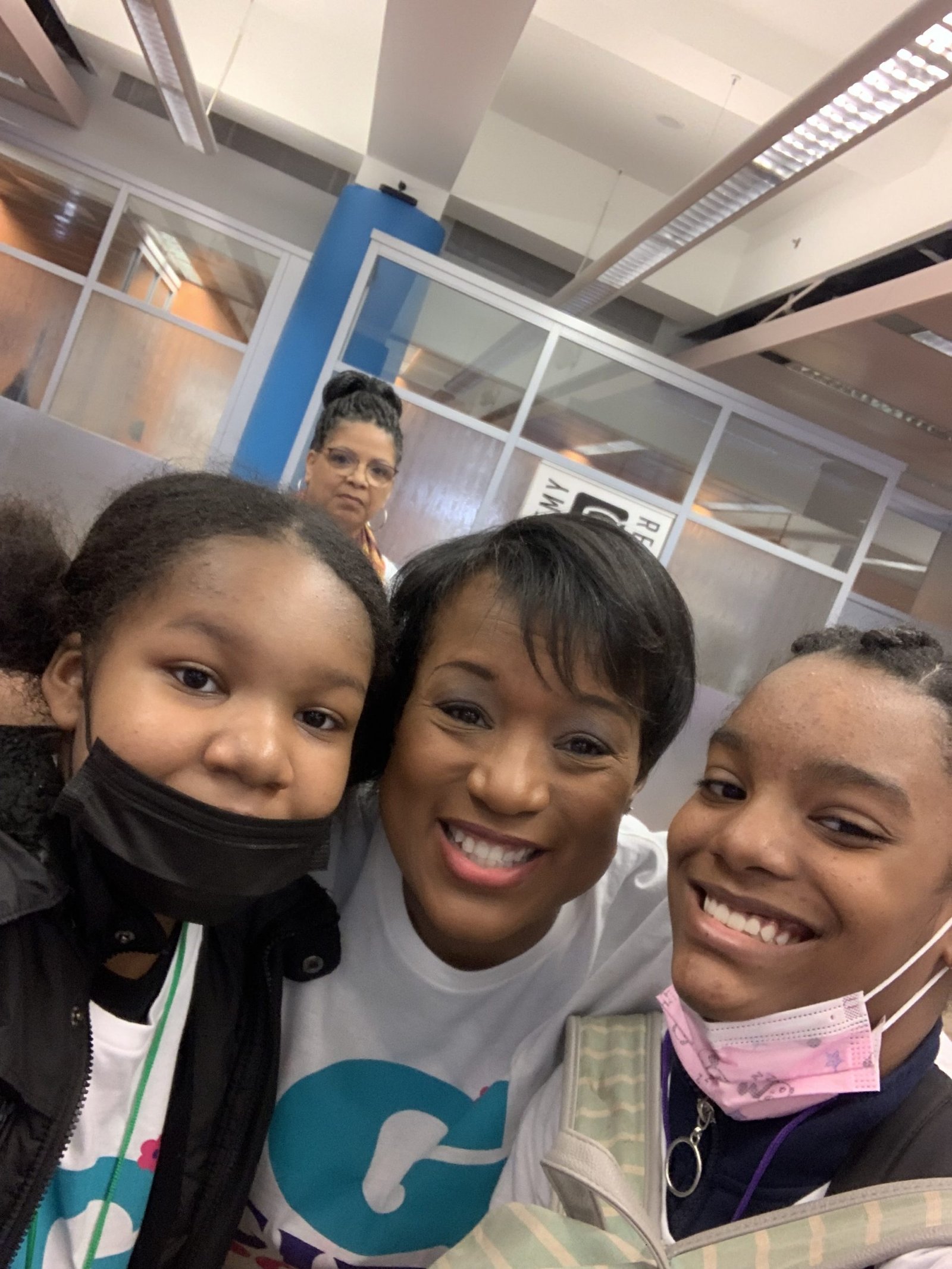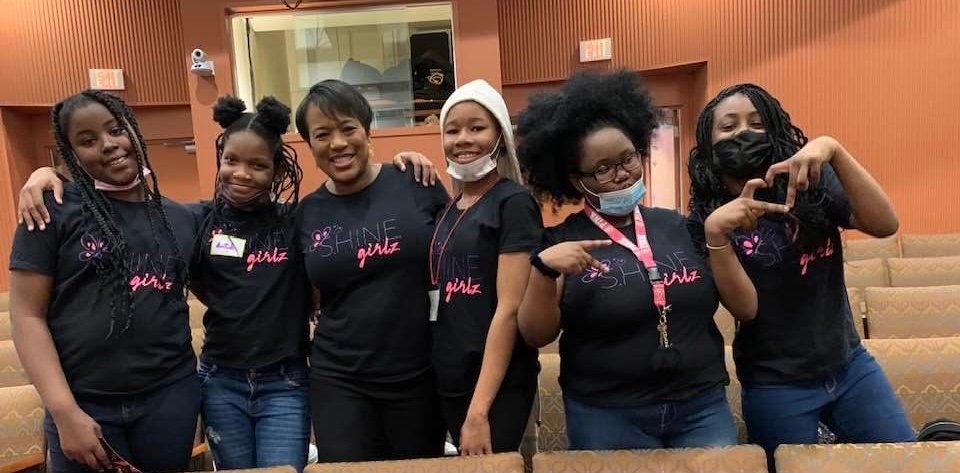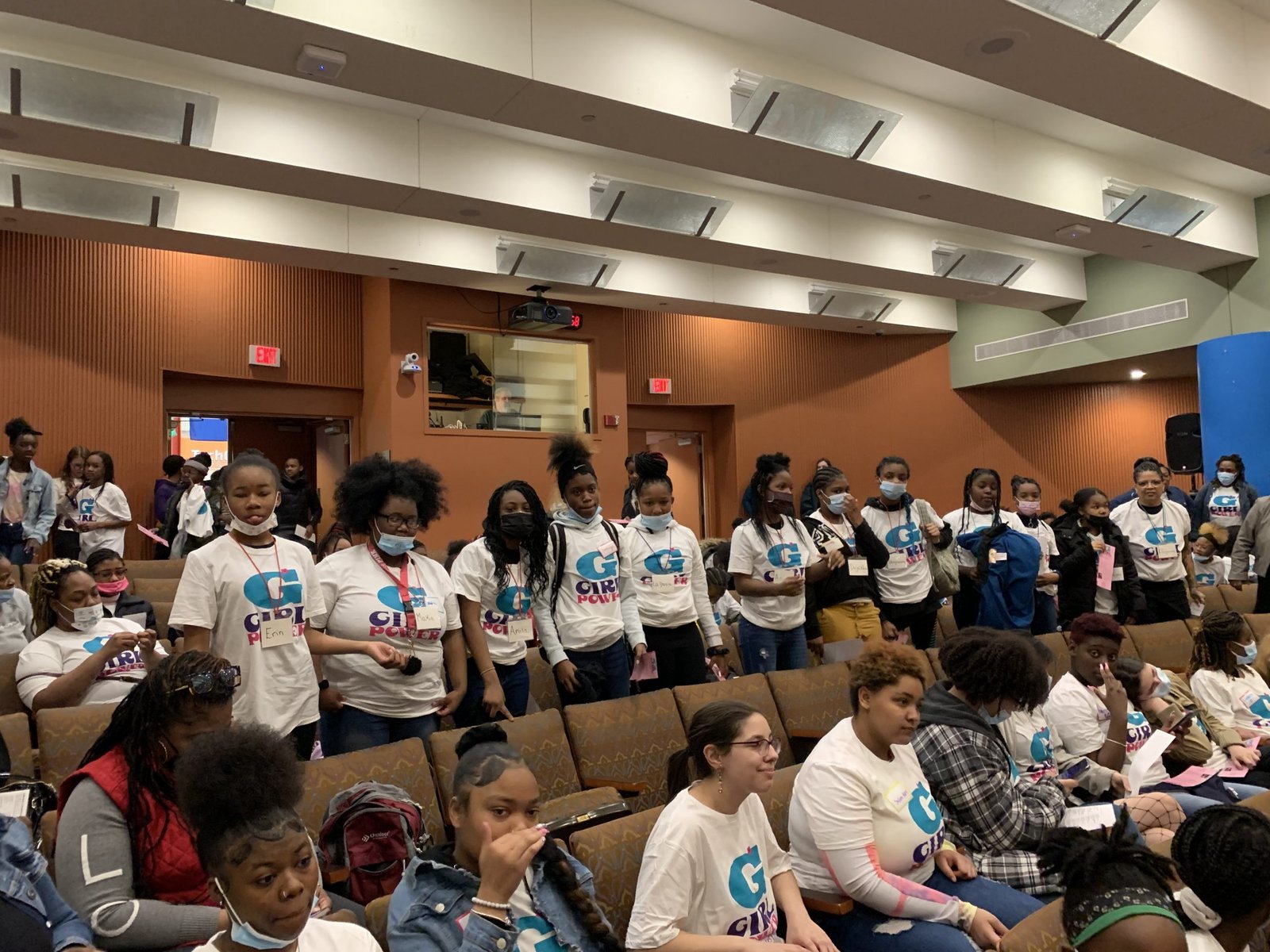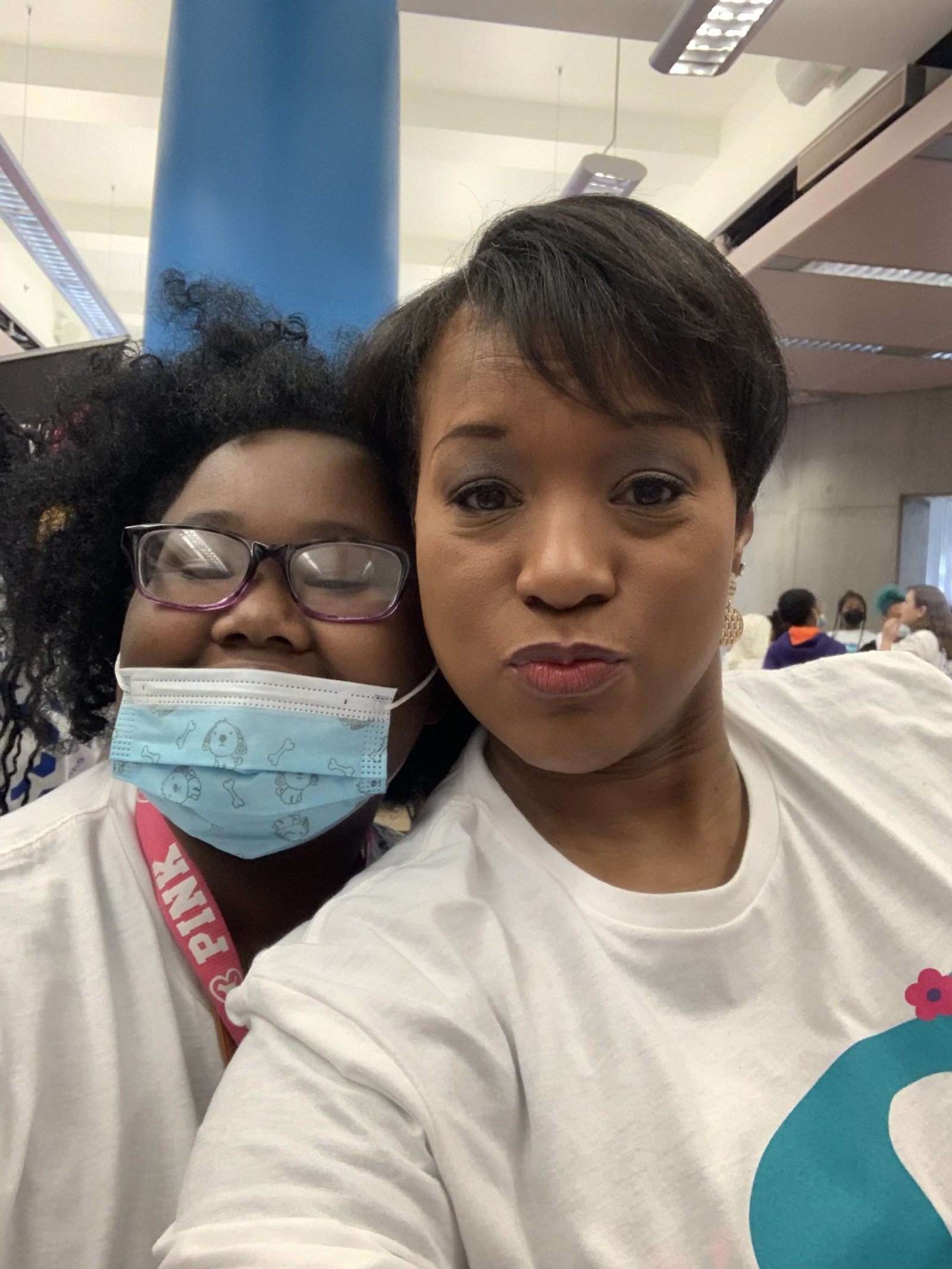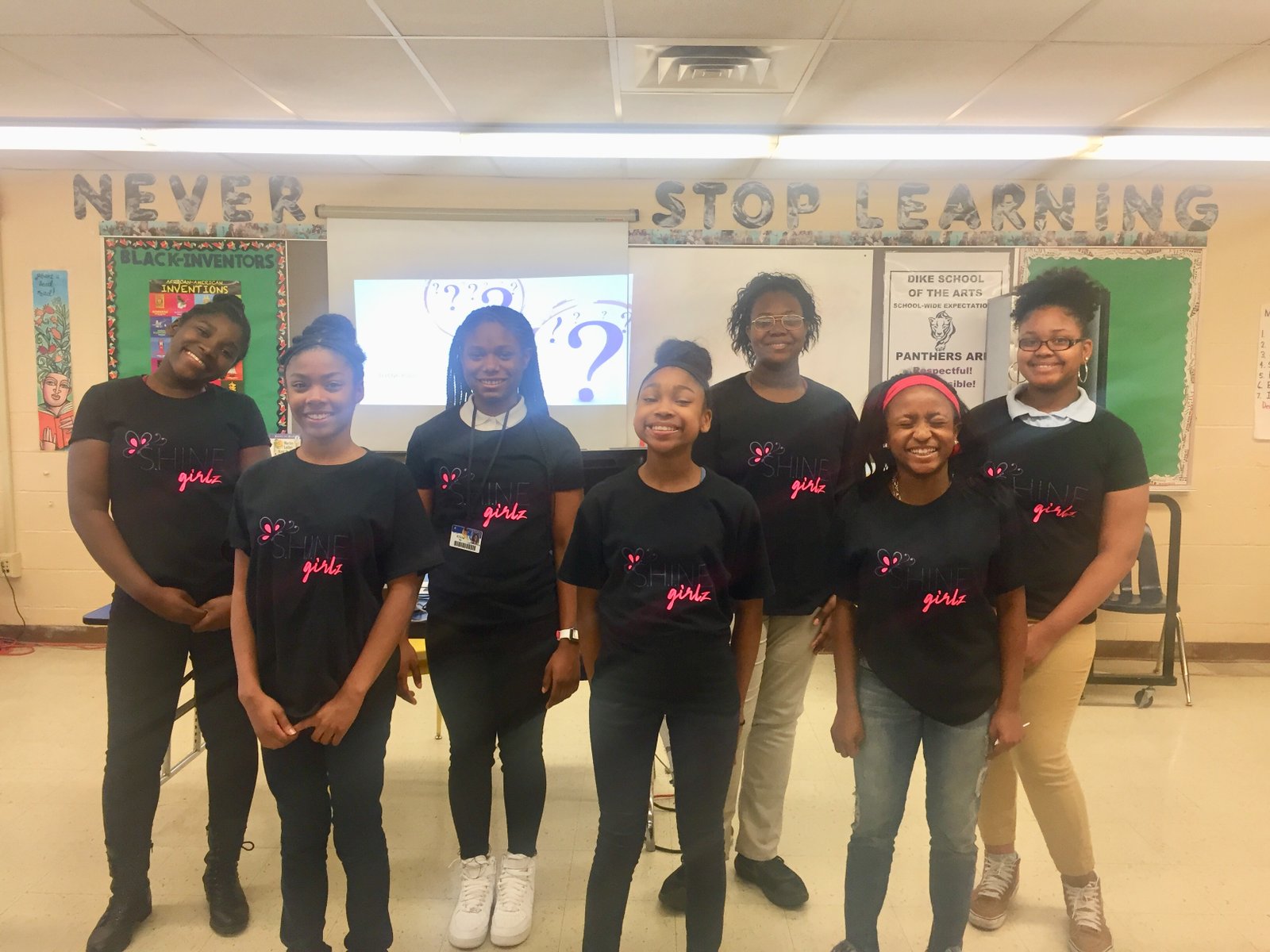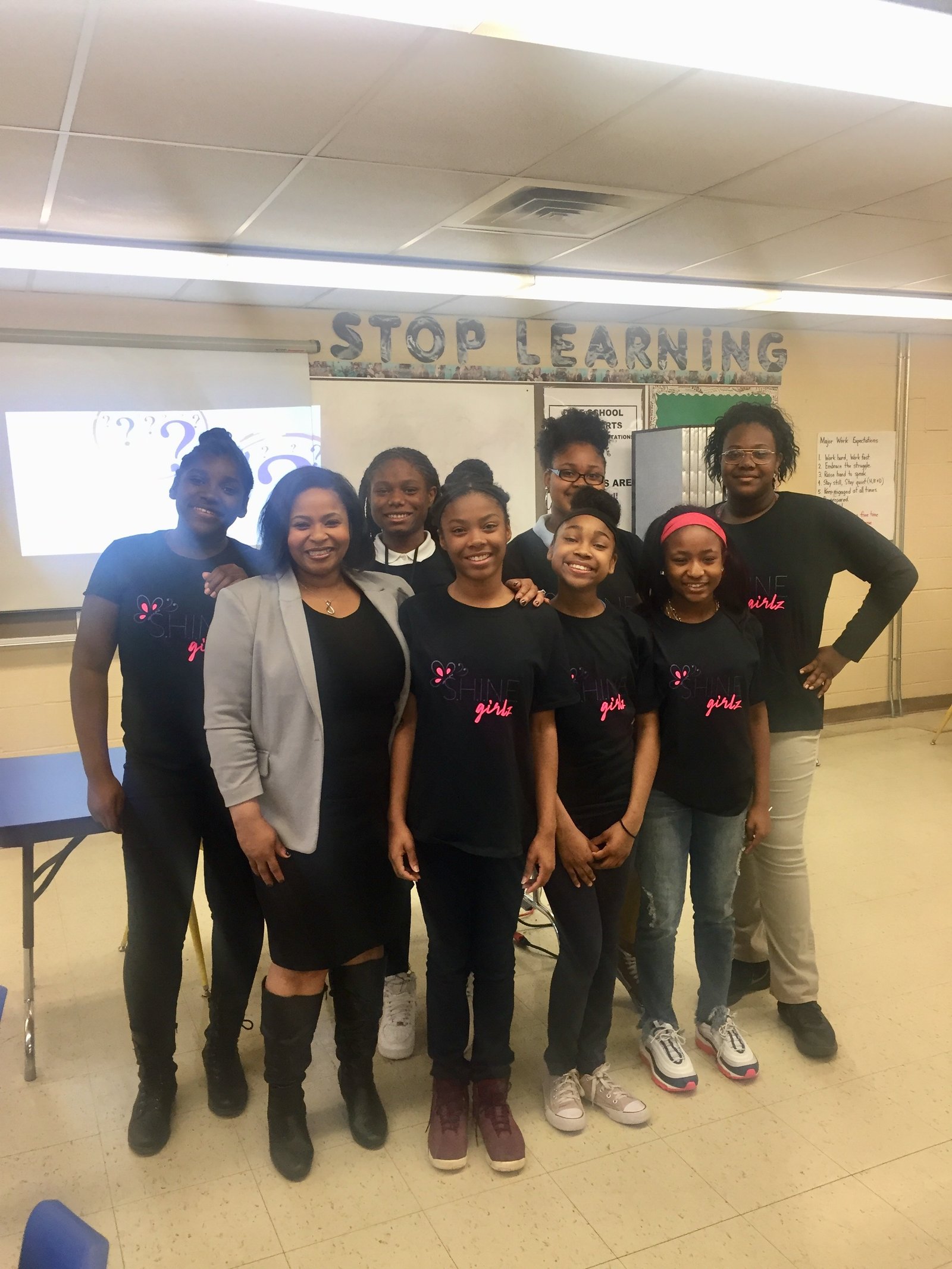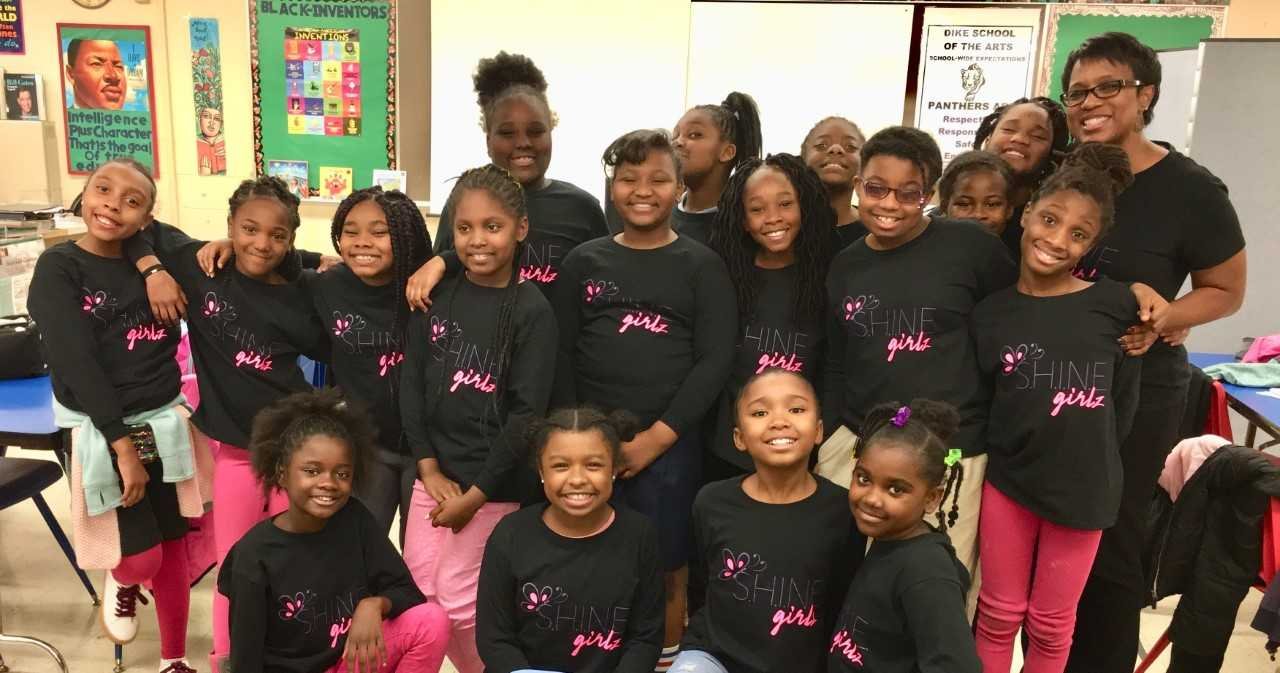
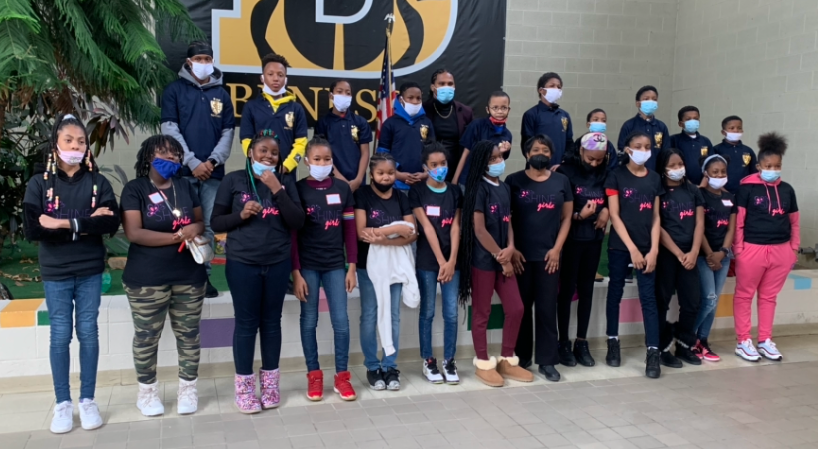
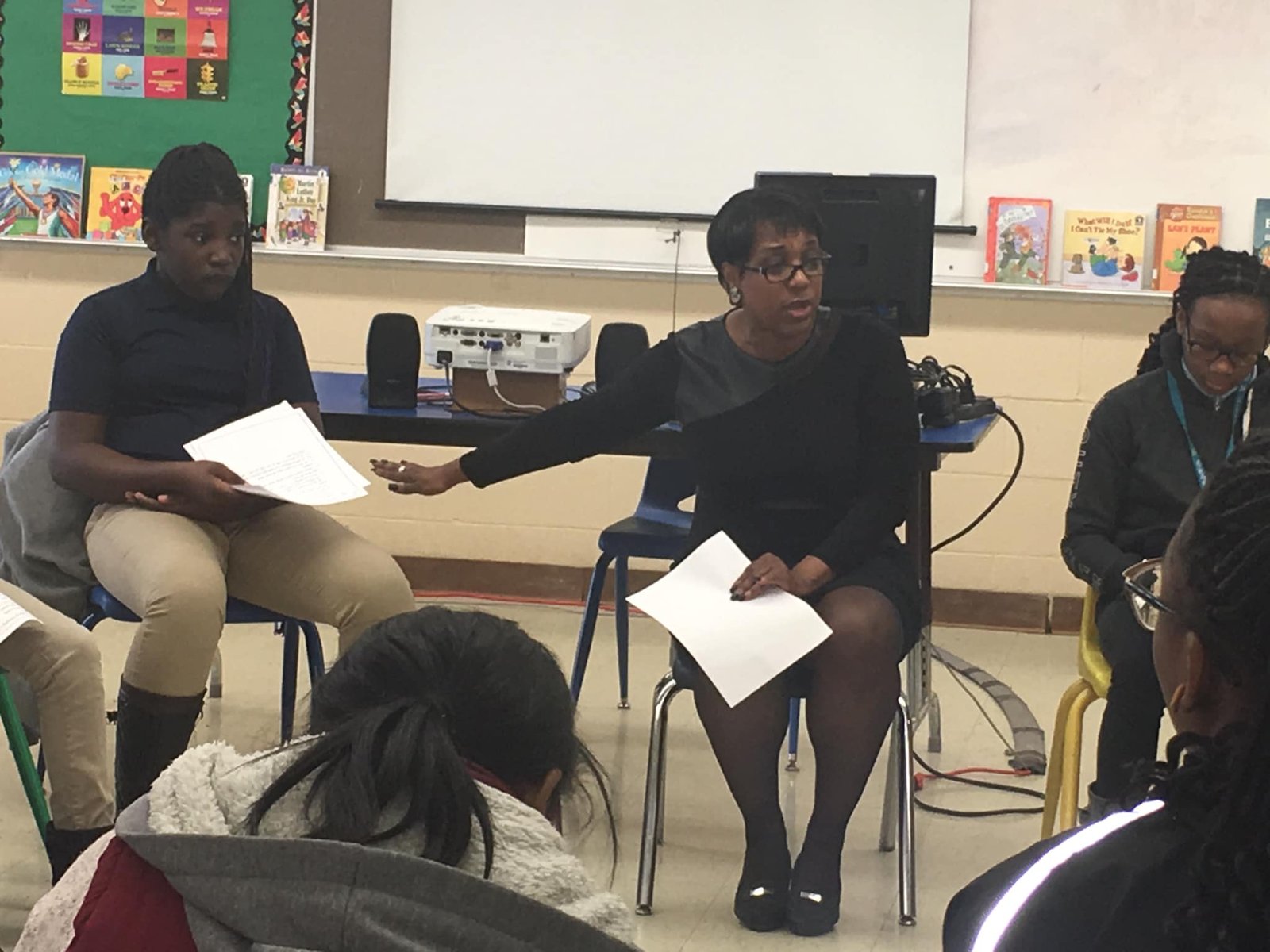
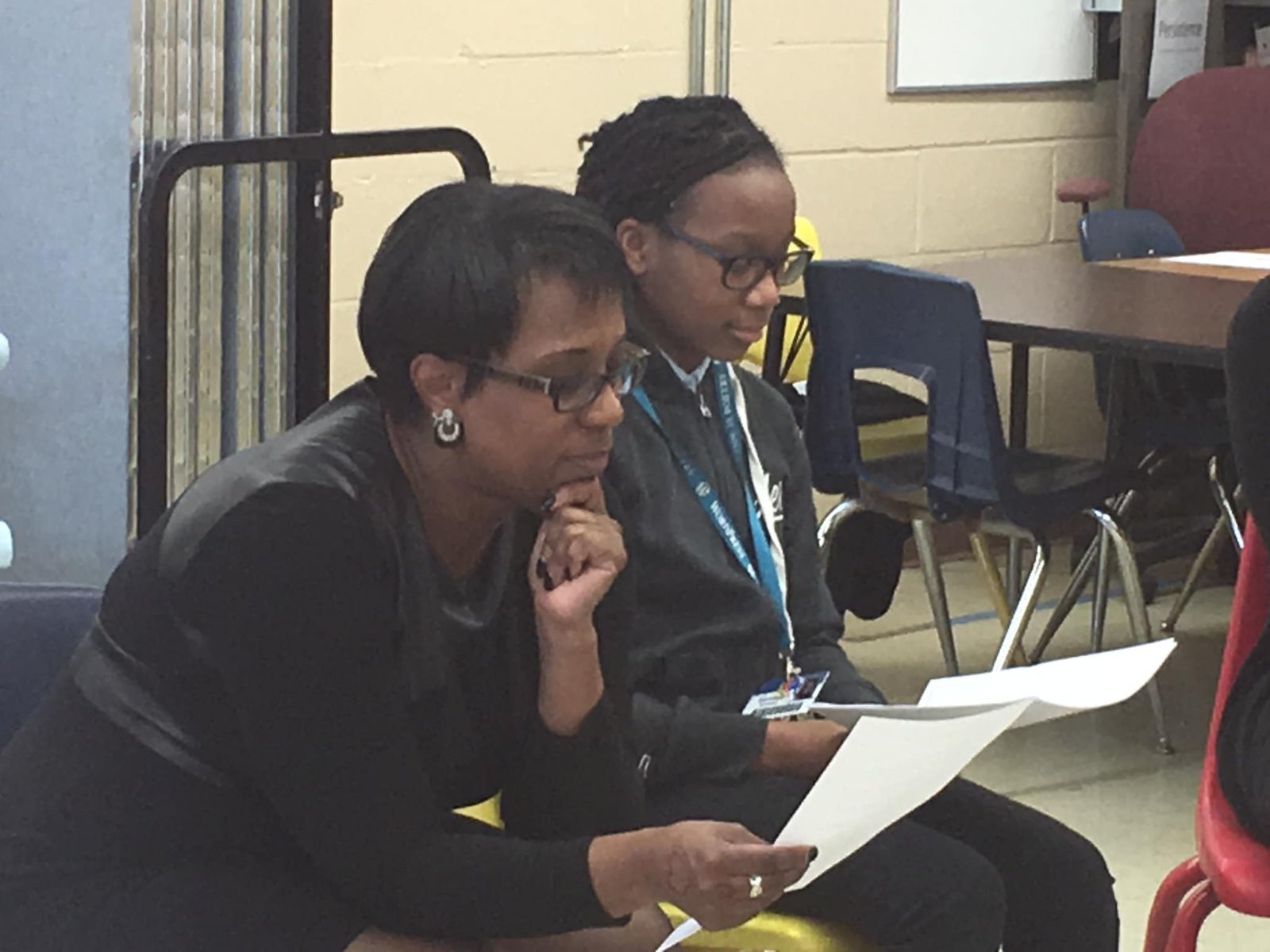
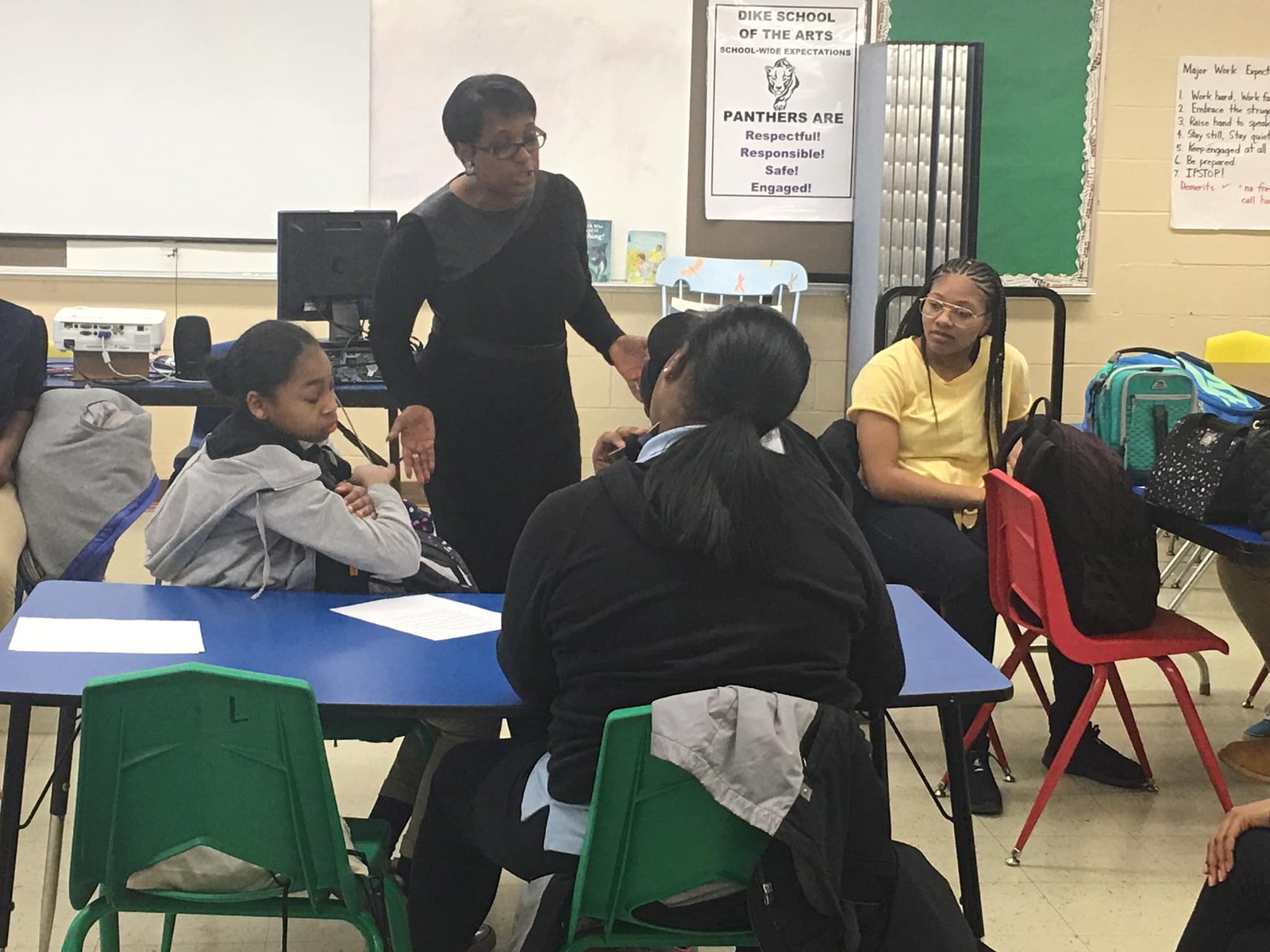
Mayor Bibb Visits S.H.I.N.E Girlz and Boyz!
Cleveland Mayor Justin Bibb spoke to the SHINE students at Mary McLeod Bethune Elementary School. It was the certificate ceremony for the students, showing they successfully completed the SHINE mentoring program. It was a great time of celebration for the SHINE mentoring team, students and school staff.S
You are Special to God.
H
I will be Helpful to those in need.
I
I will Influence my peers to do the right thing.
N
I am Needed in my community.
E
I will Excel
in my education through hard work and discpline.
We believe that by preventing problems before they occur, intervening early to change risky behaviors, and providing community referrals that would assist with on-going support will help to reinforce new skills and prevent recidivism.
S.H.I.N.E. Girlz efforts to assist all girls in positive female development. It takes into account the developmental needs of girls at adolescence, a critical stage for gender identity formation. It nurtures and reinforces "femaleness" as a positive identity with inherent strengths.
S.H.I.N.E. Girlz provides girls with decision-making and life skills that will assist their development into womanhood. Given the importance that girls place on relationships, S.H.I.N.E. Girlz teaches positive relationship-building skills. Empowerment teaches girls to use their voice, to speak for themselves, and to recognize that they have choices.
In order for our program to be successful we must be able to facilitate S.H.I.N.E. Girlz in the following manner:
Our Mary McLeod Bethune School SHINE Girlz
Our Wilbur Wright SHINE Girlz
Cleveland Public Library Girl Power Program
SHINE Girlz Alfred A. Benesch School
• Time for girls to talk, for girls to conduct emotionally "safe," comforting, challenging, nurturing conversations within ongoing relationships
• Opportunities for girls to develop relationships of trust and interdependence with other women already present in their lives (such as friends, relatives, neighbors, church members)
• Our program tap girls' cultural strengths and builds on Afrocentric perspectives of history and community relationships
• We provide mentors who share experiences that resonate with the realities of girls' lives and who exemplify survival and growth
• Giving girls a voice in program design, implementation, and evaluation
• Adequate financing to ensure that comprehensive programming will be sustained long enough for girls to integrate the benefits
ADDRESSING RISK & RESILIENCY FACTORS
S.H.I.N.E. Girlz addresses the risks and dangers girls face, and also encourages those protective factors that can help girls. Specific risks addressed in S.H.IN.E. Girlz model include the following:
- • Poverty
- • Ethnic membership
- • Poor academic performance
- • Teen pregnancy
- • Substance abuse
- • Victimization
- • Health and mental health concerns
- • Career Exploration
Resilient girls, who avoid delinquency despite exposure to risks, tend to have a close relationship with at least one caring, trusted adult. Their teachers and parents tend to express high expectations for them, helping them look positively toward the future. They are given opportunities to meet positive role models and mentors through their neighborhood and community life.
The following protective factors, which can be targeted in S.H.I.N.E. Girlz, help girls change their negative behavior:
• Gender identification:
Persistent messages about sex roles hit many girls hard at adolescence, resulting in a well-documented drop in self-confidence and hope during the early teens. Research by Carol Gilligan and others has shown that many girls feel as if they lose their "voice" at adolescence, and revert to silence and passivity in place of assertiveness and strength (Taylor, Gilligan & Sullivan, 1995). Gender-identity development counters this trend and helps girls see their maturity to womanhood as a hopeful future.
• Interpersonal relations:
Relationships are of particular importance to girls, who are socialized from a young age to listen to others and to value emotional exchanges (Archer, 1985; Lobeber & Hay, 1997; Streitmatter, 1988). Positive relationships, including girls' informal communities of friends and their relationships with adults, can be a strong protective factor. Relationship skill building will help girls recognize potentially damaging relationships and develop healthy ways of interacting with others. Interactions between girl offenders and juvenile justice staff provide a context for girls to participate in healthy relationships. These interactions need to be fostered in a positive, ongoing, therapeutic manner. In residential settings, girls need to develop healthy ways of interacting with all staff responsible for their care. Some relationships will be close, interpersonal, and lasting, while others will be respectful but limited to the roles of student and staff.
• Self-esteem:
Girls' self-esteem is particularly vulnerable at adolescence. Low self-esteem can be a precipitating factor in delinquency, depression, suicide, eating disorders, substance abuse, teen pregnancy, and school failure (Albrecht, 1994). Enhanced self-esteem can mitigate against these behavioral risks (American Association of University Women, 1991).
• Individualism:
During adolescence, girls struggle to balance feelings of self-importance with connection to others. They face the developmental task of defining themselves on their own terms, and not relying on adults for approval or determination of self-worth (Ms. Foundation, 1993; Mitten, 1995). Having a strong sense of themselves as individuals helps them set appropriate boundaries, make good decisions, and form healthy relationships. Developing this sense of self becomes more difficult if they have experienced abuse, family dysfunction, or other situations in which trust was violated (Knudson-Martin, 1994).
• Future orientation:
An orientation toward the future serves as a protective factor by allowing girls to see beyond immediate life circumstances, such as poverty. Girls who value and aspire to educational achievement tend to have a compelling sense of the future (Benard, 1991).
• Physical development:
During puberty, a greater number of physical, emotional, psychological, and social changes occur simultaneously than at any other developmental stage. Girls who enter puberty close to the time of their immediate peer group are most likely to master this transition successfully (Brooks-Gunn & Reiter, 1990). Delaying sexual activity offers girls a protective factor against unwanted pregnancy and other risks that could lead to delinquency.
• Family-school-community support:
Youths who have a strong bond with a family member or a trusted adult outside the family are less likely to engage in delinquent behaviors. Families foster positive development in girls by providing a nurturing home environment; setting clear limits; teaching cultural identity; communicating expectations; and monitoring the whereabouts of their children. Schools provide more protective factors by setting clear policies and high expectations; providing health education that may prevent girls from engaging in risky behaviors (such as early sexual experimentation or substance abuse); teaching problem-solving and communication skills; identifying learning disabilities; and offering early remediation to keep academic development on track. Similarly, communities can help build resilient girls by fostering positive identity development, including strong cultural or ethnic identities. By working together, families, schools, and communities can provide a network of support for girls (Benard, 1991).
S.H.I.N.E. Girlz is designed with an understanding of the connection between risk factors girls face at adolescence and protective factors that can help them avoid delinquency.
Risk Factors
- Early sexual experimentation
- Academic failure
- History of sexual abuse
- Low self-esteem
- Dysfunctional family system
- Racism
- Sexism
- Substance abuse
Protective Factors
- Delay of sexual experimentation
- Academic success/progress
- Positive sexual development
- Positive self-esteem
- Positive family environment
- Positive minority identity
- Positive gender identity
- Prosocial skills and competence
